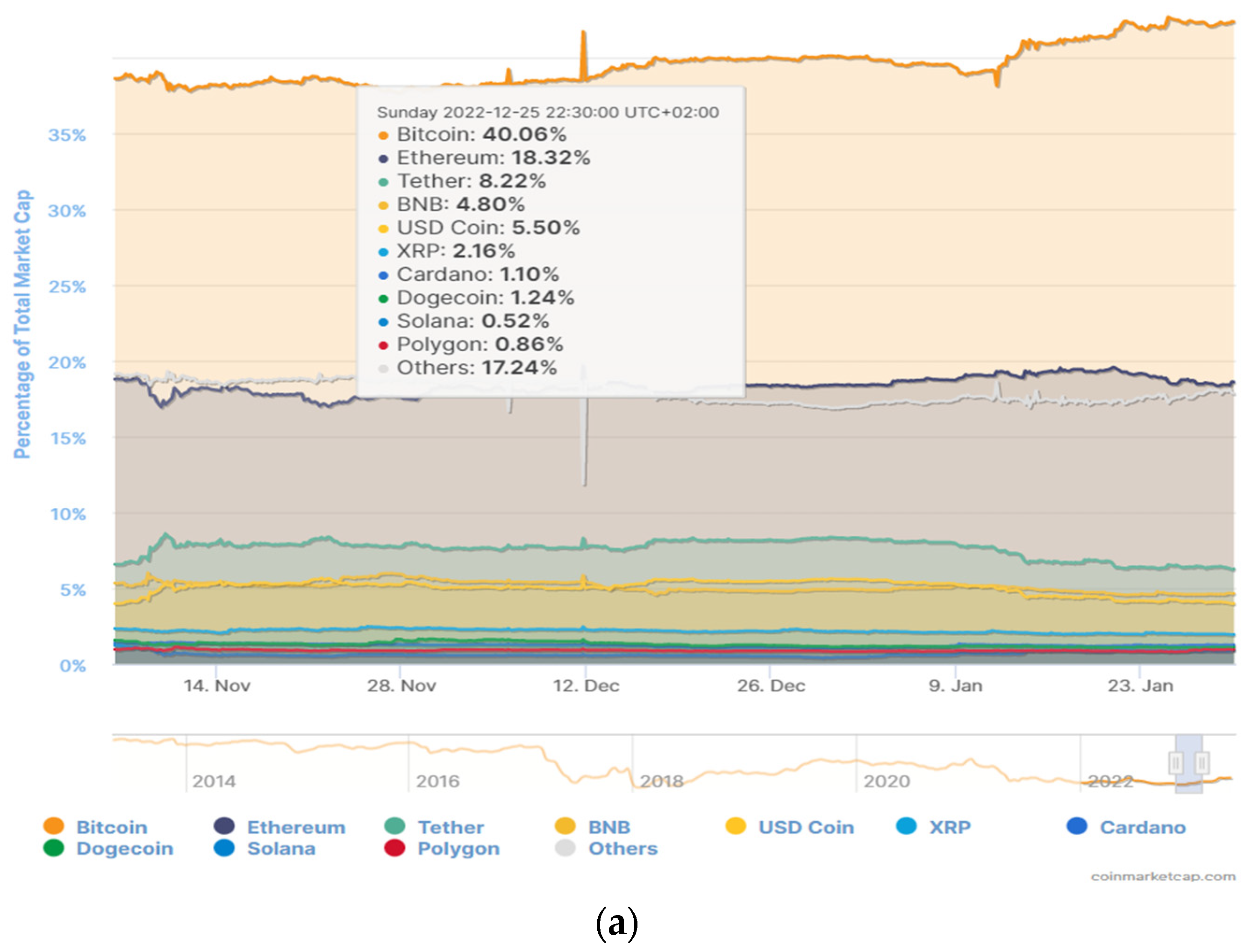Machine learning should only be capitalized at the beginning of a sentence or when used in a title. It is a subset of artificial intelligence that focuses on the development of systems that can learn from and make decisions based on data.
As an integral part of the tech industry, machine learning drives innovation by enabling computers to improve their performance with experience. Its applications range from voice recognition software to personalized content recommendation algorithms. Companies across various sectors utilize machine learning to analyze large datasets, optimize operations, and enhance customer experiences.
Whether you’re involved in tech, business, healthcare, or any data-driven field, understanding machine learning is crucial for staying competitive in the digital age.

Credit: www.mdpi.com
The Birth Of Machine Learning
The journey of machine learning began with an idea: could machines learn? This question marks the fascinating inception of a field that merges mathematics, statistics, and computer science to empower computers with the ability to learn without being explicitly programmed.
Evolution From Computer Science
Machine learning evolved from the roots of computer science. Machines started with basic tasks. Slowly, they progressed to more complex operations. Scientists and researchers aimed to create algorithms that could improve through experience, just like humans do.
Alan Turing, a pioneer in computing, famously posed the question, “Can machines think?” This sparked the exploration of artificial intelligence in the mid-20th century. As computing power grew, so too did the potential for machines to handle data and learn from it.
Key Milestones
The history of machine learning is marked by key events. Here’s a brief timeline highlighting these milestones:
| Year | Milestone |
|---|---|
| 1950 | Alan Turing’s Computing Machinery and Intelligence paper |
| 1952 | Arthur Samuel’s checkers-playing program |
| 1957 | Frank Rosenblatt’s perceptron, an early neural network |
| 1967 | Nearest neighbor algorithm, a pattern recognition method |
| 1980s | Backpropagation algorithms enhance neural networks |
| 1990s | Machine learning diverges from artificial intelligence |
| 2000s | Deep learning brings breakthroughs in processing and data handling |
With each milestone, machine learning advanced, building its own identity within the tech world.
Machine Learning In The Economy

Machine learning shapes our economy in powerful ways. It predicts trends, personalizes shopping and automates tasks. Businesses use machine learning to stay competitive and efficient. This technology drives growth across various industries, creating numerous opportunities.
Market Growth Dynamics
Machine learning transforms market growth. It unlocks new possibilities in data analysis. Companies harness its power to forecast market changes with precision. This results in smarter decision-making and robust growth strategies.
- Enhanced productivity: Automation reduces errors and speeds up operations.
- Improved decision-making: Data-driven insights lead to better business outcomes.
- Greater innovation: Machine learning fosters the development of new products and services.
Investment Trends
Investors are betting big on machine learning. Capital flows into startups and established tech firms alike. This trend reflects confidence in machine learning’s economic impact. It is reshaping industries and delivering high returns.
| Year | Investment in Machine Learning (in billions) |
|---|---|
| 2021 | $30B |
| 2022 | $50B |
| 2023 | Projected to increase |
Startups specializing in machine learning are attracting significant funding. Sectors like healthcare, finance, and retail see large investments. This results in ever-evolving services and products to meet market demands.
Capitalization Beyond Finances

Capitalization Beyond Finances often stirs images of monetary investments, stock markets, and balance sheets. Yet, the term carries extra weight in the burgeoning field of machine learning. As businesses harness their power, machine learning transcends mere technology. Businesses view it as both intellectual property and a strategic business asset. Let’s unpack these facets to understand their critical importance to organizations worldwide.
Intellectual Property Rights
Machine learning models act as unique creators. They produce novel algorithms that convert data into actionable insights. These models and their outputs qualify for protection under intellectual property law.
- Patents: Unique algorithms can be patented. This defense secures exclusive rights for use.
- Copyrights: Code as a creative work is eligible for copyright. This deters unauthorized reproduction.
- Trade Secrets: Some machine learning techniques stay hidden as trade secrets. They provide competitive edges.
Strategic Business Asset
As an asset, machine learning drives decision-making and operational efficiencies. It becomes intertwined with a company’s strategic roadmap.
- Machine learning models predict market trends. This aligns product development with consumer needs.
- They improve process automation. Such efficiency slashes costs and boosts productivity.
- Analyzing consumer data helps tailor marketing efforts. Personalized campaigns mean higher conversion rates.
Machine learning integration warrants sizable investments. Forward-thinking leaders ensure they allocate resources to this field. In doing so, they guarantee machine learning’s role as a pivotal business asset, essential for growth and innovation.

Credit: www.linkedin.com
Ethical Considerations In Ml
As machine learning (ML) technologies become more widespread, ethical concerns are increasingly coming to the fore. From employment to criminal justice, ML systems have the potential to impact society profoundly. It’s critical to consider the ethical aspects of these technologies. A focus on two vital areas, bias and fairness, and transparency and accountability, is essential.
Bias And Fairness
Bias in ML poses a serious concern. To address this, data sets must reflect diversity. This ensures equal treatment across various groups. Here are key points to reduce bias:
- Use data representing all affected groups.
- Regularly test algorithms for bias.
- Involve diverse teams in ML development.
Transparency And Accountability
Transparency is crucial for trust in ML systems. Accountability involves clear protocols for errors or misuse. The following steps foster accountability:
- Document ML model development processes.
- Make results understandable for non-experts.
- Establish accountability guidelines for developers.
Future Prospects Of Machine Learning

Imagine a world where machines learn like humans. Machine learning (ML) is making that a reality. Every day, ML steps further into this future. From smart homes to self-driving cars, it changes how we live and work. The future glows brightly with possibilities.
Technological Frontiers
ML advances whisper of untapped potential. Each discovery uncovers new uses. Algorithms grow smarter and more intuitive. This progress paints an exciting vista for tech’s role in our lives.
- Deep learning transforms photos into talking avatars.
- AI models predict weather patterns with sharp accuracy.
- Healthcare uses algorithms for early disease detection.
Potential Market Value
The surge in ML adoption spells huge market growth. Numbers rise, indicating a goldmine. Analysts predict billions in market value. By 2025, the machine-learning market could skyrocket.
| Year | Projected Market Value (USD Billion) |
|---|---|
| 2021 | 12.3 |
| 2022 | 15.4 |
| 2023 | 19.9 |
| 2025 | 30.6 |
Estimates based on current trends.
Demystifying The Capitalization Debate
When we write about technology, words matter. Talk has stirred on whether ‘Machine Learning‘ should start with capital letters. This post dives into the capitalization puzzle, shining a light on rules and trends.
Media Influence On Perception
Bold headlines grab attention. They often use capitalization to stress importance. This shapes how we view the term ‘Machine Learning. When media outlets capitalize it, they aren’t just giving the term weight—they’re influencing how we perceive its significance.
- News articles frequently capitalize on Machine Learning to highlight it as a key topic.
- Podcasts and videos follow suit, presenting it with capital letters in titles and subtitles.
- On social media, hashtags like #MachineLearning bring together discussions about the field.
Real-world Examples
In professional settings, the way we capitalize ‘Machine Learning‘ also holds weight. It can reflect the formal nature of documents and presentations.
| Document Type | Capitalization |
|---|---|
| Academic Papers | Often capitalized to denote a defined field of study |
| Business Proposals | Capitalized when referring to specific solutions or products |
| Technical Guides | May not capitalize when used as a common noun term |
An in-depth understanding comes from looking at context. Consistency in documents sets a standard for others to follow. Each use case can dictate a different approach to capitalization.
Frequently Asked Questions Of Is Machine Learning Capitalized
How Should “Machine Learning” Be Capitalized?
“Machine learning” should be capitalized only when it forms part of a title or when it’s a proper noun, such as a course name like “Machine Learning 101. ” In general text, it’s not capitalized.
Is “Machine Learning” A Proper Noun?
No, “machine learning” is not a proper noun. It’s a common noun unless it’s part of a specific title or name, in which case it would be capitalized.
When Writing About Ai, Is Capitalization Necessary?
Capitalization when writing about AI (artificial intelligence) depends on usage. “AI” is an acronym and is always capitalized. However, related common nouns like “machine learning” follow standard capitalization rules.
Are Educational Courses In Tech Capitalized?
Educational courses are capitalized when referring to specific course titles. For example, “Advanced Machine Learning” would be capitalized, but not when speaking about the subject generally.
Conclusion
As we wrap up our exploration of machine learning, it’s clear that capitalization depends largely on context. Remember, when referring to the field of study, ‘machine learning‘ typically remains lowercase. Yet, in titles or when personified within a product, capitalization might be appropriate.
Stay precise in your writing, and you’ll convey your message effectively and accurately. Keep these points in mind to maintain clarity and professionalism in your documents.



